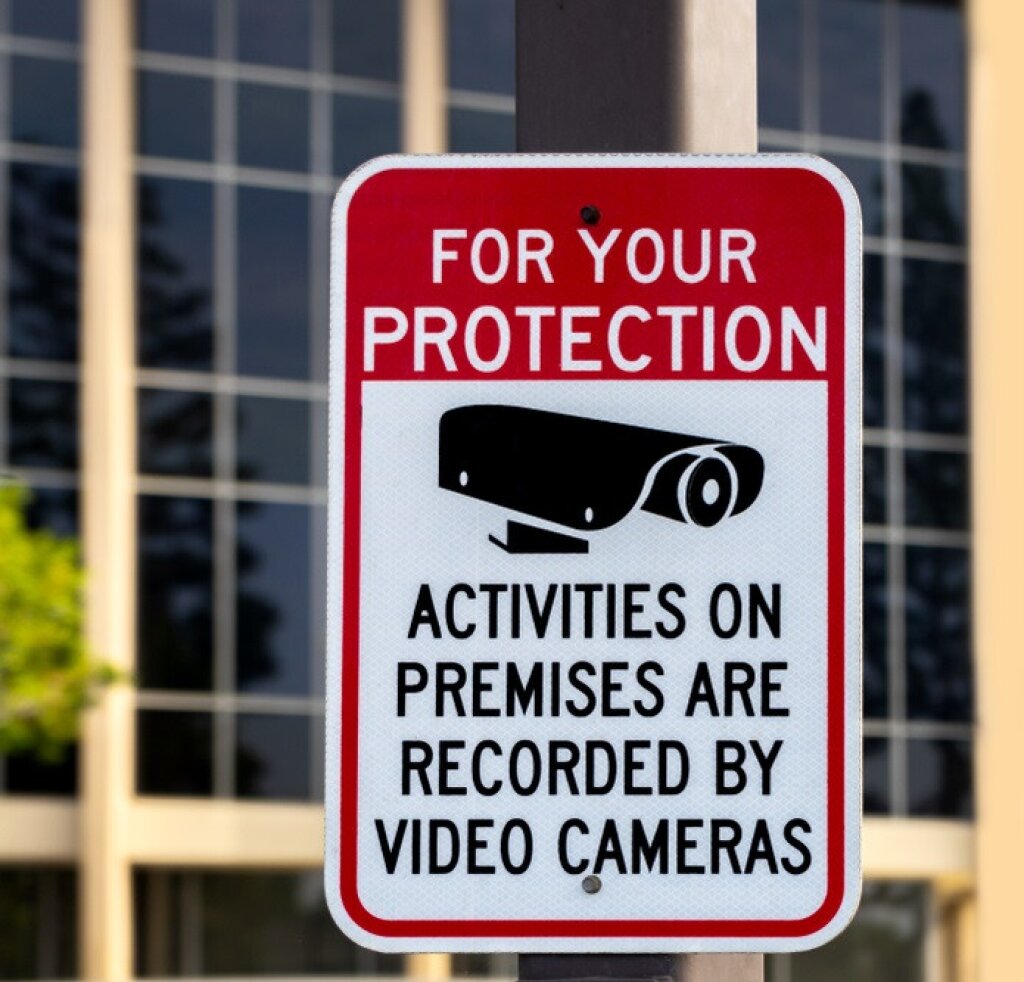Ensuring GDPR Compliance in Schools with Redaction Tools
As educational institutions handle vast amounts of personal data, the need for compliance with the General Data Protection Regulation (GDPR) has become paramount. Ensuring that sensitive information is securely managed protects individuals' privacy and shields schools from legal and reputational risks. Redaction tools are a vital resource in achieving regulatory compliance.
In this article, you can learn how automated redaction software can help schools achieve GDPR compliance, protect student data and streamline document and video management.

What is GDPR and Why is it Important for Schools?
The General Data Protection Regulation (GDPR) is a comprehensive legal framework introduced by the European Union and the UK to protect personal data and privacy. For schools, GDPR has particular significance as it applies to the personal data of students, parents and staff. Personal includes names, contact information, health records, academic data and even images, including photographs and video footage.
Schools must act as responsible data controllers, ensuring that they collect, store and process personal data in a secure manner. The stakes are high: non-compliance can lead to penalties, censure and loss of trust from parents and the community.
Schools have a duty to implement safeguards that prioritise the rights of individuals, especially children, who are considered vulnerable under GDPR.
Challenges of GDPR Compliance in Schools
Despite its importance, achieving GDPR compliance presents several challenges for schools:
Maintaining Student Consent
Schools must obtain explicit, informed consent before collecting and using personal data. For minors, obtaining consent involves navigating parental permissions, which can be time-consuming and complex.Training Staff
Teachers and administrative staff often lack the technical know-how required to handle data securely. Without adequate training, they may unintentionally expose sensitive information.Managing Data Breaches
Schools are frequent targets of cyberattacks, and a data breach can expose sensitive information that could resulting in penalties and reputational damage.Volume of Data
The sheer amount of data schools handle - from attendance records to communication with parents - makes it challenging to monitor and secure every dataset.
Understanding Data Subject Rights
Under GDPR, individuals (data subjects) have specific rights regarding their personal data, including:
Right of Access
Students and parents can request access to personal data held by the school.Right to Rectification
They can demand corrections to inaccurate or incomplete data.Right to Erasure (Right to be Forgotten)
Individuals can request deletion of their data under certain circumstances.
Schools must establish efficient processes to handle these requests promptly. For example, a student’s family might request the erasure of medical data no longer relevant to the school, which requires a secure mechanism to ensure compliance.
Benefits of Using Automated Redaction Software
Automated redaction software is a powerful tool to help schools meet GDPR requirements. Automated redaction tools work by identifying and obscuring sensitive information in documents, such as names, addresses, or other personal identifiers.
Automated tools can also redact personal data in videos, which includes faces, name badges and other distinguishing elements. Key benefits include:
Accuracy
Redaction tools minimise human error and ensure that no sensitive information is accidentally exposed.Efficiency
Automation allows schools to handle large volumes of data requests and audits quickly.Security
Digital redaction ensures that once data is obscured, it cannot be retrieved, which adds an extra layer of protection.
Case Study: Successful Implementation of Redaction Tools
A secondary school in the UK recently adopted automated redaction software to handle Subject Access Requests (SARs) under GDPR. Previously, manually reviewing and redacting documents was labour-intensive, highly time-consuming and prone to mistakes.
After implementing the software, the school reduced processing time by 70% and greatly improved accuracy.
By updating and enhancing its privacy protection processes, the school shift not only eased administrative workloads but also bolstered trust with parents and regulatory bodies.
Training Staff for GDPR Compliance
Compliance isn't solely a technological challenge - it requires a cultural shift. Schools must invest in regular training for teachers and administrative staff, covering:
GDPR Fundamentals
Understanding key regulations and their implications.Data Handling Practices
Secure storage, sharing and disposal of personal data.Use of Redaction Tools
Ensuring appropriate staff members are proficient in using technology to protect sensitive information.
By fostering a culture of data protection, schools can significantly reduce the risk of accidental breaches and ensure sustained compliance.
The Future of GDPR in Education
As technology evolves, the intersection of GDPR and education will continue to transform. Likely trends include:
Advanced AI Tools
Machine learning algorithms will further enhance automated redaction and make compliance faster and more reliable.Increased Scrutiny
Regulatory bodies may impose stricter rules around data sharing, particularly with the rise of EdTech platforms.Global Influence
Countries beyond the UK and Non-EU countries are adopting GDPR-inspired legislation, potentially harmonising global standards for educational institutions. See our article on FERPA
Schools that embrace innovation and prioritise GDPR compliance will not only protect their stakeholders but also position themselves as leaders in responsible data management.
Ensuring GDPR compliance is a dynamic challenge for schools, but with the right tools and training, it is achievable.
Automated redaction software offers a pragmatic solution to safeguard sensitive information, uphold data subject rights and mitigate compliance risks.
By investing in redaction technologies and fostering a culture of data protection, schools can meet their obligations and build trust in their communities.
GDPR Checklist for Schools: Compliance Guide
1. Data Protection Officer (DPO)
Appoint a dedicated Data Protection Officer responsible for overseeing GDPR compliance within your school or Mult-Academy Trust.
Ensure the DPO has expertise in data protection laws and best practices.
2. Privacy Notices for Schools
Develop clear, accessible privacy notices for staff, students and parents that outline how their data is collected, processed and stored.
Draft a GDPR-compliant CCTV policy if surveillance systems are in place.
Include details on the purpose of data collection, retention periods and individual rights.
3. Staff and Student Data Collection
Obtain explicit consent from staff and parents for collecting and processing personal data.
Conduct regular audits to verify the accuracy and relevance of stored data.
Implement security measures to prevent breaches and unauthorised access.
Provide staff training on data protection policies and procedures.
4. Third-Party Data Processors
Identify and assess all third-party processors handling personal data for the school.
Establish written contracts with these entities to ensure they comply with GDPR requirements and safeguard data confidentiality.
5. Parental Consent
Secure parental consent before processing student data, particularly sensitive information.
Clearly communicate the purpose and legal basis for data processing when obtaining consent.
Allow parents the option to withdraw their consent at any time.
6. Record-Keeping
Maintain detailed records of all data processing activities.
Document the purpose, legal basis, categories, recipients, retention periods and security measures for each activity.
Regularly review and update these records to remain compliant.
7. Managing GDPR Security Breaches
Establish clear procedures for detecting, investigating and reporting data breaches promptly.
Assign responsibility for breach management and ensure staff are familiar with the reporting process.
Notify the Information Commissioner’s Office (ICO) and affected individuals within the 72-hour deadline when required.
By following this GDPR checklist, schools can enhance their data protection practices and ensure ongoing compliance. Regular review and updates of these practices are essential to stay aligned with regulations.
Contact Facit for Support
If you have compliance questions or need assistance, please complete the form below and our team will respond.
Facit Automated Redaction Tools for Schools
Facit works extensively with schools, colleges and universities to enable them to process data compliantly and cost-effectively. Explore how Facit simplifies GDPR compliance processes with easy-to-use automated redaction solutions for Document Redaction and Video Redaction.
We are fully aware that schools face challenges that involve budgets, on-site compliance and technological expertise, and pressures on available time. Facit would be delighted to advise and to share our experience about how we have helped other schools to overcome these challenges.
Related Articles



